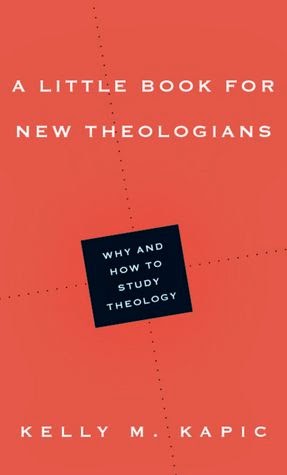THE STUDY AND PRACTICE OF THE WORD: The False Dichotomy of those at the Pulpit and those in the Pews.
The Study and Practice of the Word: The
False Dichotomy of those at the Pulpit and those in the Pews.
As promised in my last post Come to Class with Me I will be sharing some of reflection from my studies. Here’s the first one. I was reading “A Little Book for New Theologians: Why and How to Study Theology” by Kelly M. Kapic. It’s a book I will recommend to every Christian out there to read. It’s actually a little as per its title. I remember having a book of elements of literature in my undergrad it had ‘little’ in its title, but it was not that little, theologians don’t lie 😋, this is actually small. Anyways, here’s part of my reflection after reading Kapic’s work. Sorry it may appear not fun with the citations as it’s also an assignment and I needed to try and stay ‘academic’.
One thing I have experienced from time to time
in the many churches I have attended is the false dichotomy that we seem to
create where there are those who study and/or preach the Word from the pulpit
and those who sit in the pews whose role is to hear and/or practice the Word. It is a dichotomy that we do not usually wish
to say out loud yet we have it firmly incarnated in our hearts. I do not want
to downplay the fact that there are others who have been called to teach and
preach the Word (1 Cor. 12: 28; Rom. 12: 7; Eph. 4: 11). However, we sometimes
exaggerate this view and end up purposefully or purposelessly running away from
the obligation that every believer has to study and practice the Word of God
(John 5: 39; Joshua 1: 8; Psalm 119; Col. 3: 13; Rom. 10: 17). It is not a one-way
process, but rather two-way, study and practice it, preach and live it.
 |
| He's really epic on theology... |
This false dichotomy, of those preaching at
the pulpit and those siting in the pew, has led Christians as Kapic puts it to divorce
theology from spirituality (Kapic, 2012: 47). He laments that separating
theology and spirituality “is to misunderstand, and eventually damage, both.” At
one point in my life I fell for the temptation of looking at theology very
negatively; accusing it of being a distraction from spirituality. Kapic
contradicts this view convincingly as he calls for all Christians whether at
the pulpit or in the pews to “care deeply about theology. If the true God is
renewing our lives and calling us to worship Him “in spirit and truth” (Jn
4:23), then such worship includes our thoughts, words, affections and actions”
(2012: 16). Unlike my previous stigma towards theology, Kapic positively views
the art of theology as a more committed way of studying the Word of God and
that this study does not just end at knowing, but the more we study it the more
we are compelled to practice it, thus, the more spiritual we become. Kapic
calls for us to be as committed and as rigorous in the way we study God so much
as we do when we talk to Him in prayer (2012, 68). He pauses the question “why
should you turn from your God when you turn to your books, or feel that you
must turn from your books in order to turn to God? Yet when we look at Psalm
119 the author marries prayer and the meditation of God’s word together as a
way to understand, obey and know God deeper. The author of Psalm shows so much
pleasure and commitment in studying the Word and this answers Kapic’s question
that we cannot separate prayer and the study of the Word.
Kapic says (2012, 77) a ‘true theologian of
the cross’ is one who starts with self before preaching to others. Once this
view towards theology becomes common knowledge not only to those at the pulpit
but to the whole body of Christ, we will be able to view the study of the Word
not only as homework to those at the pulpit or in seminary, but to every
believer. In so doing, we will make all us good theologians, that is to say,
good stewards of the Word. There will not be that false dichotomy of those at
the pulpit and those in the pews until “it becomes impossible to imagine theology
that is not hungering and thirsting for communion with God” (2012, 63).


Comments